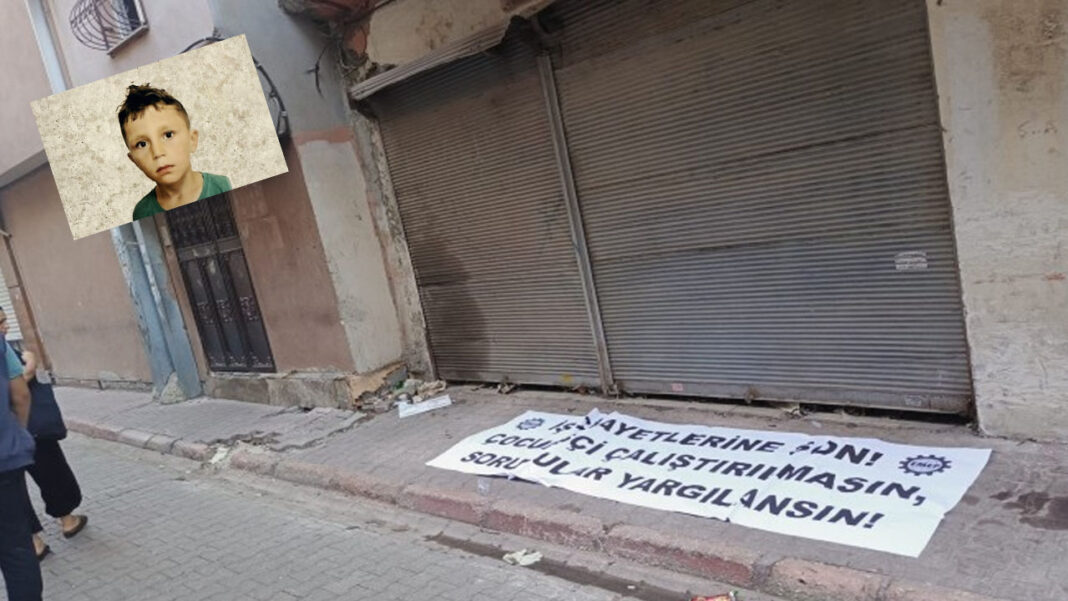At least 695 minors died in workplace accidents in Turkey between 2013 and May of this year, the Stockholm Center for Freedom reported, citing a newly released report by the Health and Safety Labor Watch (İSİG) on Tuesday.
The report, coinciding with the World Day Against Child Labor on June 12, highlights the grim realities faced by many young workers in the country.
The report indicates that economic hardship has driven many children into the workforce, resulting in an annual average of 60-70 child labor-related deaths. In addition to fatalities, thousands of child workers suffered injuries and long-term physical or mental health issues that often go unreported.
Since 2013, the death toll among child laborers has been consistently high: 59 in 2013, 54 in 2014, 63 in 2015, 56 in 2016, 60 in 2017, 67 in 2018, 67 in 2019, 67 in 2020, 62 in 2021, 62 in 2022, 54 in 2023 and 24 in the first five months of 2024.
The distribution of deaths spans multiple sectors, with agriculture and forestry being the deadliest, accounting for 383 child deaths. Construction follows with 75 deaths, metalwork with 52, hospitality with 49 and food processing with 24. Other sectors such as trade, general services, textiles, transportation and more also report significant fatalities.
Traffic and transport accidents are the leading cause of child worker deaths, responsible for 193 fatalities. Other causes include poisoning or drowning (115 deaths), crushing and cave-ins (97 deaths), falls from heights (63 deaths), violence (58 deaths), electrocution (44 deaths), lightning strikes (41 deaths), explosions and burns (28 deaths), heart attacks and strokes (14 deaths), cutting or severing of limbs (13 deaths), suicides (10 deaths) and other miscellaneous causes (10 deaths).
The youngest recorded victims were just 4 years old, with five children in this age group losing their lives. The highest number of deaths occurred among 17-year-olds, with 220 fatalities. The report reveals that child labor in Turkey often begins as early as age 4, with a significant increase in the number of working children from age 8 onwards.
Of the 695 children who died, 596 were boys and 99 were girls, with girls making up 14 percent of the total deaths. This proportion is double the average death rate for female workers of all ages, and most of these fatalities occurred in the agricultural sector.
The report also highlights the plight of migrant child laborers, with 80 deaths reported over the decade. Most of these children were from Syria, followed by Afghanistan, Iraq, Iran and Turkmenistan. Migrant children, who constitute 12 percent of child laborer deaths, often work in the most hazardous sectors, including seasonal agriculture, food and textile industries and construction.
Meanwhile, an 11-year-old Syrian child worker, Ahmet Direk Turan Haskiro, was killed in an elevator at a textile factory in the Seyhan district of Adana in southern Turkey on Tuesday morning where he was working along with his mother, the Bianet news website reported.
Other employees said the elevator had not been functioning properly and that the factory owners had not gotten it repaired, complaining how cheap human life is to them.
Turkey is one of the 10 worst countries in the world for working people, according to the International Trade Union Confederation (ITUC). İSİG recorded more than 30,000 fatal accidents since the Justice and Development Party (AKP) came to power in November 2002.
According to occupational safety experts and union leaders, people have been suffering from lax work safety standards for decades in Turkey, where workplace accidents are nearly a daily occurrence.
Furthermore, they have criticized the government for turning the country into a source of cheap labor for Europe at the expense of proper safety measures. Workers often feel obliged to work under unsafe conditions fearing that they will become jobless and unable to support their families.
Union leaders on several occasions said poor working conditions in Turkey were directly related to the government’s oppressive policies and that a stronger democracy was vital for improving workers’ rights. Government policies have made it impossible for workers to join unions or demonstrate for better working conditions and safety precautions.
According to an ITUC report, the Turkish government imposed severe restrictions on civil liberties, and workers’ rights were violated with police crackdowns on protests and the arbitrary arrest of union leaders.
Turkey was categorized as a country where there was “no guarantee of labor rights,” meaning that while a country’s legislation may spell out certain rights, workers effectively have no access to these rights and are therefore exposed to autocratic regimes and unfair labor practices.

